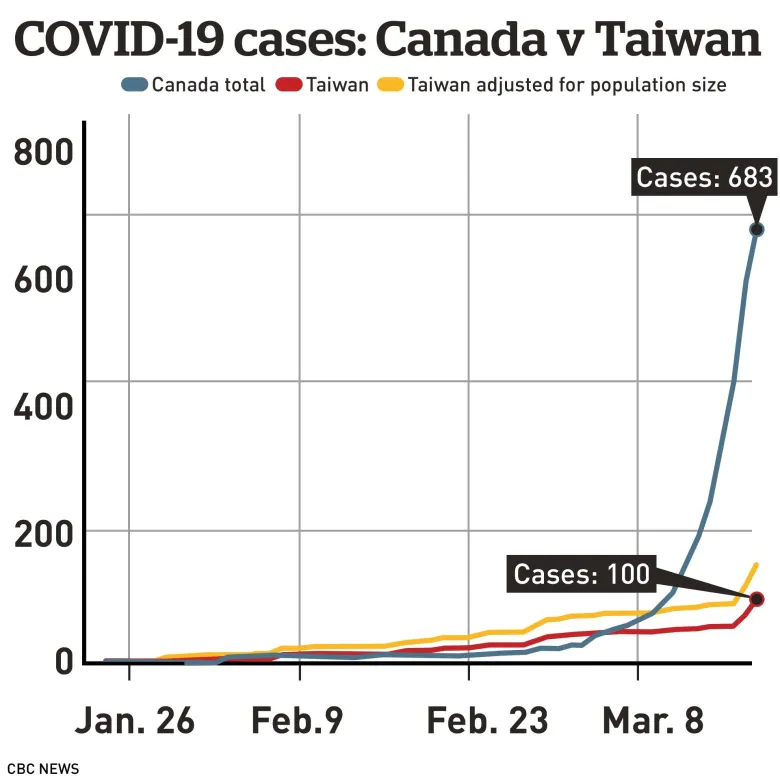Taiwan has limited the outbreak of COVID-19 using big data and other emergency measures despite its close proximity to mainland China.
Taiwan is credited with sharply limiting the spread of coronavirus on the island by pairing and analyzing the electronic health and travel records of its residents, along with enacting other emergency measures.
But privacy experts say legal protections would prevent similar big data use in Canada.
When adjusted for population size, Taiwan has about 70 per cent fewer cases than Canada, despite being just 130 kilometres from China, where the outbreak began, and having thousands of daily visitors from the mainland — 2.7 million in total in 2019 alone.
Both Canada and Taiwan reported their first presumptive cases of coronavirus within days of each other in January, but by March they had diverged sharply in the number of infections reported.
As Canada struggles to flatten the curve — or slow the spread of the virus — Taiwan has prevented a curve.

Dr. Jason Wang, director of the centre for policy, outcomes and prevention in Stanford University’s school of medicine, said Taiwanese authorities were “vigilant.”
“They acted swiftly and they brought in measures to contain the spread of the virus,” said Wang, who frequently teaches in Taiwan.
Wang co-authored “Response to COVID-19 in Taiwan: Big Data Analytics, New Technology and Testing,” which was published in the journal JAMA. In that analysis, he noted that the island has been on alert for epidemics since the SARS outbreak in 2003.
According to his analysis, Taiwanese officials began boarding flights from Wuhan, the initial epicentre of the outbreak, as early as Dec. 31, 2019, shortly after China disclosed its first cases of the novel coronavirus. Eventually, certain flights were banned and visas for visitors to Taiwan were cancelled.
Triaging with text messaging
The government has since barred all foreign travellers from entering the island.
Taiwan also created a health questionnaire that passengers accessed by scanning a QR code with their phones while still on planes as they were arriving.
Depending on their health status, they were sent a text message providing them with a health declaration pass to fast-track through immigration. Anyone at a higher risk of infection was urged to go into self-isolation at home and tracked via their cellphone to make sure they stayed there. False reporting of health information became a fineable offence.
“So this way they could triage a large number of passengers very quickly without lining up in the airport, which in itself is a risk,” Wang said.
After activating its central epidemic command centre on Jan. 20, the Taiwanese government integrated its health insurance database with its immigration database to create a real-time super data source that became central to identifying peo

